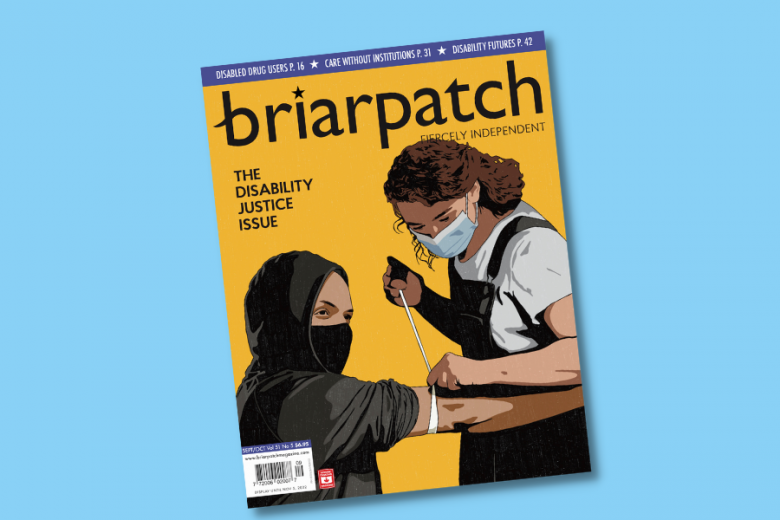The first time I participated in transformative justice (TJ) work, I didn’t know that was what I was doing. I was dating a colleague at an anti-violence organization – a passionate, dedicated activist and friend who was a wonderful partner and who also, at times, treated me in harmful ways. By the end of our relationship, I was deeply wounded, angry, and desperate for accountability. But I also cared about what happened to this person; I knew that the abuse in our relationship stemmed from their own experiences of harm, and I didn’t want them to lose the support of our community.
Over the next several months, with the help of trusted friends, we embarked on a series of patchwork processes, including meetings on accountability, mediation, and independent therapy. It was painful, frustrating and, in many ways, imperfect. Now, however, I reflect on it not based on what it lacked, but in terms of the possibilities it allowed: for healing, for mutual dignity, and for new conceptualizations of just, sustainable community and interdependence.
In most leftist communities and organizations, we are recognizing that the conditions of this world, and the trauma we are carrying, mean that we all have the capacity to hurt each other. We are also recognizing the ways in which we are perpetuating harm in our responses to this hurt, relying on carceral systems and tactics that detrimentally impact those who are most marginalized. But we are often under the impression that we are not able to do differently. We witness or participate in attempts to develop TJ practices and focus only on their flaws, justifying the fatalist assumption that we are so embedded in carceral systems that anything we create will inevitably replicate them or fail.
We cling to books and people that we hope will teach us how to be an expert, how to do it right. But there is actually no such thing.
In reality, we are already doing differently: unlearning and taking responsibility for the ways we uphold oppressive systems, recognizing and healing from our trauma, seeing nuance in our people and spaces, showing up and asking them to do better instead of disposing of them. In their life-giving activist text Joyful Militancy, Nick Montgomery and carla bergman urge us to recognize that “transformative potentials are always already present and emergent. Not only can things be otherwise; they already are.”
Over the past several years, I have met brilliant folks developing TJ practices locally within organizations, communities, and workplaces; creating accountability processes; holding restorative justice circles; hosting mediations; facilitating workshops; and developing conflict resolution frameworks. All of us participate in this work simply because we believe in the transformative potential of our spaces, and the capacity of their members to exist with each other in more liberatory ways. None of us think we are equipped to do this work even while we are doing it. We cling to books and people that we hope will teach us how to be an expert, how to do it right. But there is actually no such thing.
What we have and are being given are principles, beliefs, guidelines, and personal experiences of doing TJ (Mariame Kaba’s transformharm.org is a great hub for many of these resources). These are gifts from people and communities on the forefront of this work – BIPOC, queer and trans people, poor and disabled people – to help orient us to TJ as a liberatory framework: a belief system committed to transforming conditions that lead to violence and that instead uphold justice for survivors and collective liberation in tandem. They allow us to envision the kinds of work that TJ might encompass and grapple with its challenges and potentials. These are necessary tools, but they are not rule books.
We are and we must be doing TJ work actively, using all of the resources we have and are being offered.
We must use these offerings iteratively, as tools to grapple with our own spaces and our positions within them, to reflect on what work we are doing within the TJ system and what we might work toward, to recognize what resources and skills we have and where we can grow and learn. We need to collaborate, to tap into folks within and outside of our communities – the educators, healers, mediators, facilitators, organizers – to draw on collective knowledge and adapt it to our own needs and circumstances.
As TJ and disability justice organizer Mia Mingus writes, “This is not about perfection, but practice.” Practising TJ means we will mess up. I have certainly participated in TJ processes that were not truly transformative – that did not properly centre the people who had experienced harm, that shifted power into new hands, that were rushed or that did not respond quickly enough. But we are also harming each other when we do not try, and if we do not attempt to put them into being, we will never have existing alternatives.
We are and we must be doing TJ work actively, using all of the resources we have and are being offered. There will never be a perfect formula to integrate TJ seamlessly into each of our spaces and communities, because our relationships are dynamic and unique and messy, just as we are – and the only way we are going to have transformative ways of existing with each other is when we try and fail and learn and keep going.







